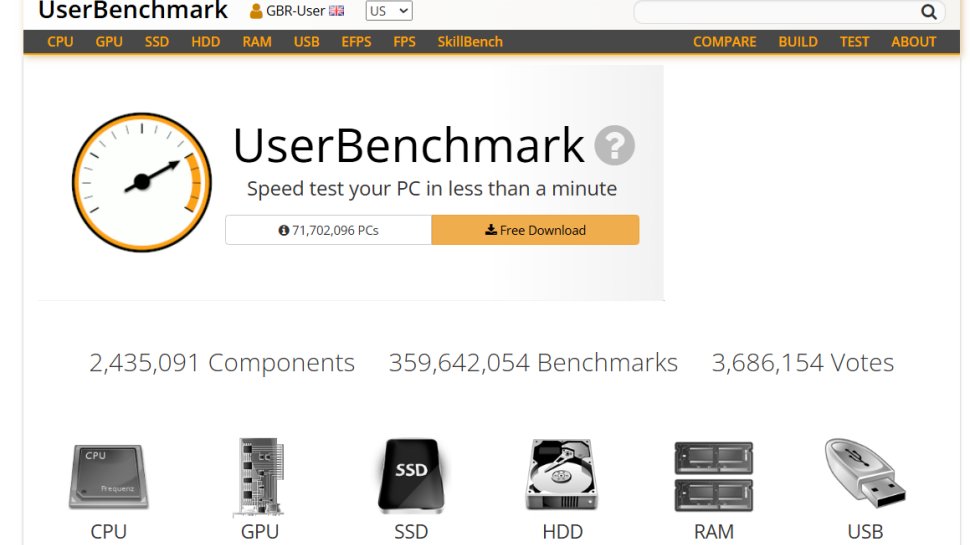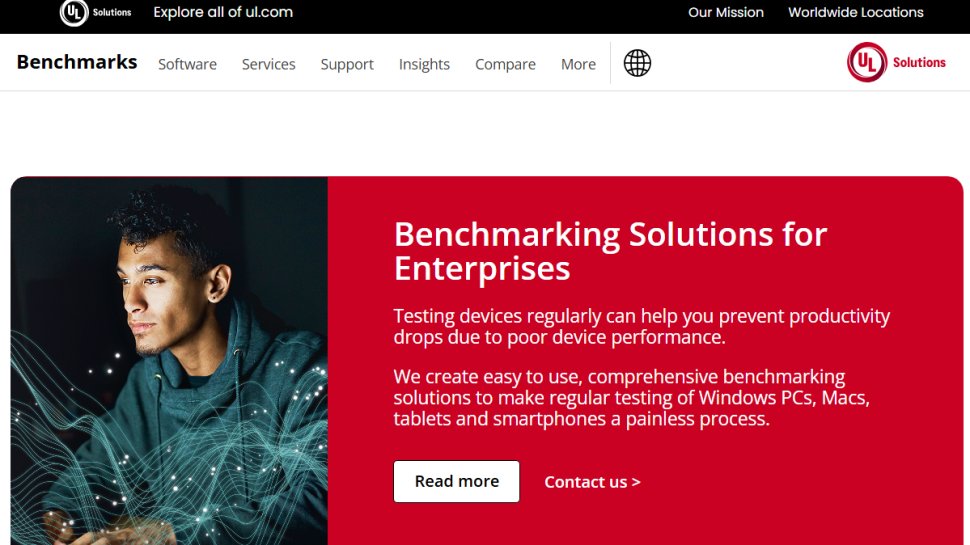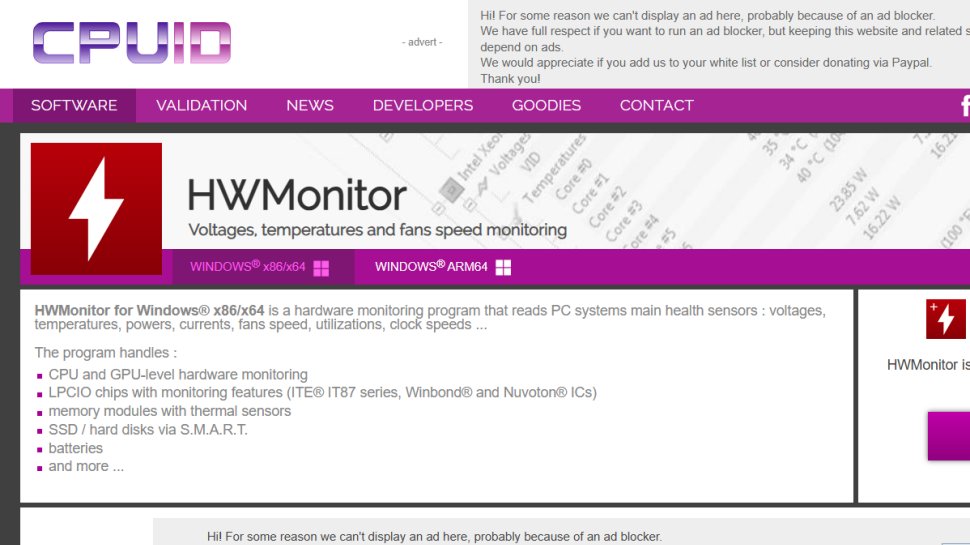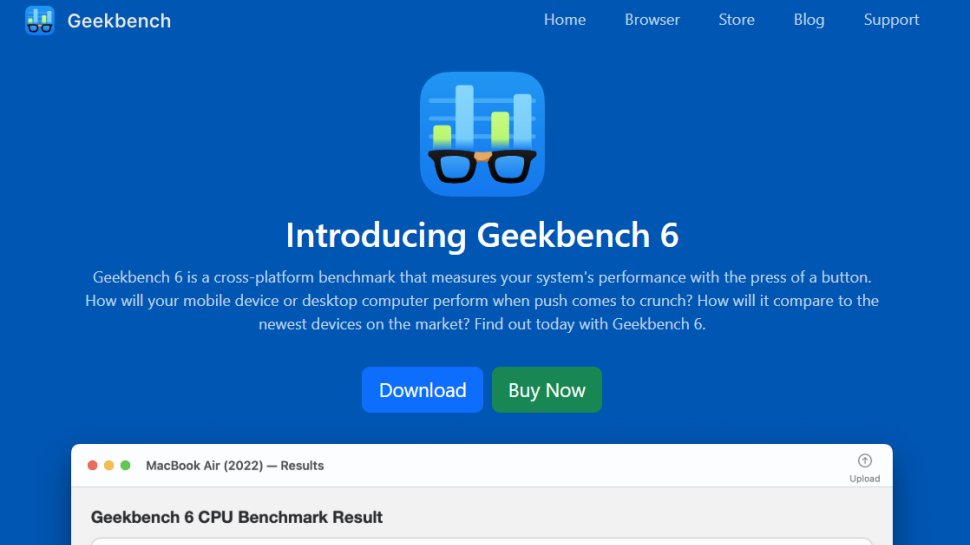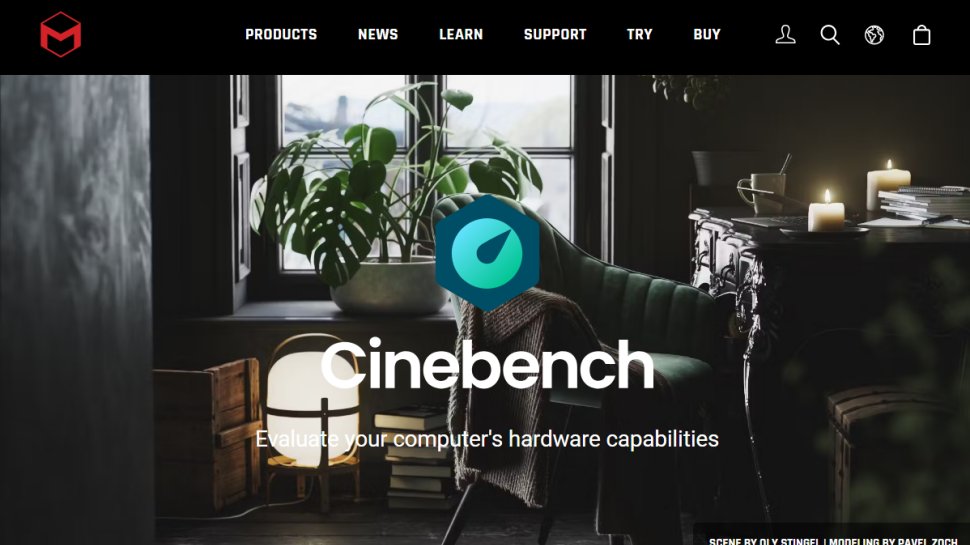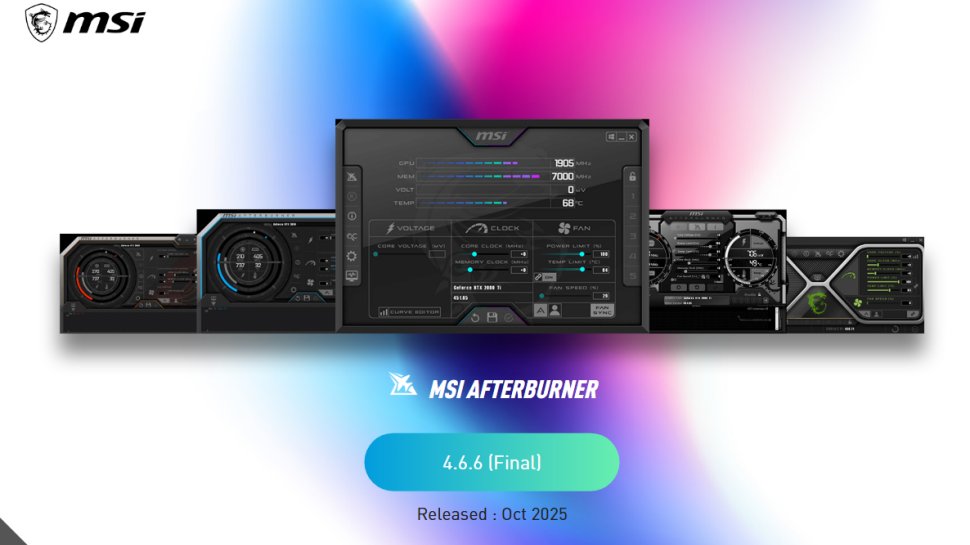Best benchmarks software of 2025
Compare hardware components

Sign up for breaking news, reviews, opinion, top tech deals, and more.
You are now subscribed
Your newsletter sign-up was successful
We list the best benchmarks software, to make it simple and easy to improve your PC's performance and test it against other hardware set-ups.
This is especially useful if looking to buy a new PC, or even simply upgrade your existing computer, as it allows you to compare hardware components and their specifications, such as processors.
A typical benchmarking application assesses three core factors: clock speeds, temperatures, and voltage. It also records the rendered frames per second and compares them to these parameters to grade your desktop’s average performance.
Running a proper benchmark can help you gauge your desktop’s overall productivity, diagnose issues with hardware components, and even overclock your rig for the best results. If you are having trouble picking the best benchmarks software for your PC, our expert guide is here to rescue you.
Below we list the best benchmarks software options currently available.
We've also featured the best business PCs.
The best benchmarks software of 2025 in full:
Why you can trust TechRadar
Best all-in one benchmarks software
1. UserBenchmark
Reasons to buy
Reasons to avoid
UserBenchmark offers a free all-in-one suite that can be used to benchmark your CPU, GPU, SSD, HDD, RAM, and even USB to help you pick the best hardware for your needs. The software is built by a team of engineers as a passion project rather than a corporate offering.
Apart from generating a slew of data alongside the net score of your hardware, it offers suggestions on how to improve performance. Every single hardware component is graded specifically based on its performance in the tests, allowing you to pinpoint exactly where your desktop is underperforming.
Users should keep in mind, however, that there are a lot of controversies involving this software. The team has repeatedly come under heavy criticism for personal attacks against tech journalists, while the benchmarks themselves have been accused of rigging the tests to put one hardware company in front of the other.
Best software for gaming benchmarks
2. 3DMark
Reasons to buy
Reasons to avoid
3DMark is one of the top benchmarking suites when it comes to putting your PC through its paces in terms of gaming performance. The package includes many gaming benchmarks that you’ll likely recognize the name of, including 3DMark Fire Strike (an older DX11 test), Time Spy (DX12) and Port Royal (ray tracing) among others.
All of these benchmarks will give you a score and allow you to compare that result with other PCs using the same (or indeed different) hardware components, letting you know how well you’re doing comparatively to other 3DMark users – which there are plenty of – and perhaps giving you the opportunity to see if your system needs to be tweaked. Furthermore, you get some estimated frame rate performance figures for a selection of popular games provided by 3DMark, too.
And of course, these benchmarks are going to be useful for anyone looking into overclocking their rig – plus 3DMark gives you the ability to stress test the stability of your overclock (by running a looped benchmark over and over).
3DMark offers a free demo (which you can download on Steam) to check out its benchmarking capabilities for yourself.
Best benchmarks software for hardware monitoring
3. HWMonitor
Reasons to buy
Reasons to avoid
HWMonitor brands itself as a hardware monitoring solution rather than a benchmarking application. However, it is one of the most used tools among gamers. The software features a simple interface that clearly displays your computer’s voltage, power consumption, temperature, clock speeds, and fan speeds.
HWMonitor is particularly useful if you are trying to figure out why your desktop is heating up. High temperatures are one of the most common reasons behind frequent shutdowns, and HWMonitor can help you diagnose the issue by recording your CPU and GPU temperatures under different settings and varying degrees of load.
HWMonitor’s classic version is the most popular and is available for free. However, there is also a more powerful paid version that is capable of monitoring devices remotely and has an improved interface for power users. It allows for up to 20 remote connections and comes with 2 years of free updates.
Best benchmarks software for Windows
4. Geekbench
Reasons to buy
Reasons to avoid
Geekbench is one of the best benchmarking applications for Windows, but it’s also available on Android, iOS, macOS, and Linux.
It benchmarks your CPU through a variety of different tests, including a few that rely on newer applications like augmented reality and machine learning. For GPUs, Geekbench enables you to utilize a range of APIs, including OpenCL, CUDA, Metal, and even Vulkan. The benchmarking application also boasts the unique ability to perform cross-platform benchmark comparisons, which you can use to compare your Apple iPhone to your Android device, or your Windows computer to a Mac.
Geekbench is available on Windows, macOS, or Linux. You can buy a license that will let you run the software on either of three platforms for a single user. Geekbench Pro is a professional-grade solution that lets you use the software commercially and features command-line tools and a standalone mode.
Best benchmarks software for CPUs
5. Cinebench
Reasons to buy
Reasons to avoid
If you are looking for a comprehensive performance evaluation for your CPU and GPU, CineBench has you covered. The free software is available on most platforms and uses image rendering tasks to grade your rig’s capabilities.
Cinebench grades CPU and OpenGL performance using 4D image rendering tests. It is particularly useful for high-end systems that scale beyond the purview of typical benchmarking software. The reports it generates are practical and based on real-world performance, dedicated to people involved in the content creation market.
The best part of Cinebench’s comprehensive 4D rendering evaluation is that it makes use of all your CPU’s available cores, stressing it to the very limit of its hardware. The product is very useful when you’re trying to build a high-end computer and need recommendations on what components to use.
Best benchmarks software for overclocking
7. MSI Afterburner
Reasons to buy
MSI Afterburner is must-have software for anyone who wants to overclock their graphics card. It is completely GPU-centric, with no support for CPUs, but the amount of control it provides is what makes it truly remarkable.
MSI Afterburner works with any GPU regardless of its brand. Not only does it give you detailed hardware specifications for your graphics card, but it also gives you full control over your GPU, including aspects like fan speeds, voltage, and clock speeds. The software also features an FPS counter that lets you measure your GPU performance in real-time.
MSI Afterburner is a free utility. If you are looking for gold-standard software to safely overclock your GPU, it is the only tool you will need.
We've also featured the best free PC cleaner.
Best benchmarks software FAQs
Which benchmarks software is best for you?
When deciding which benchmarks software to use, first consider what your actual needs are, as sometimes free platforms may only provide basic options, so if you need to use advanced tools you may find a paid platform is much more worthwhile. Additionally, your choice may also be decided on whether you're just curious about your hardware options and choices, or whether you have a professional need to benchmark different aspects of your hardware.
How we tested the best benchmarks software
To test for the best benchmarks software we first set up an account with the relevant platform, then tested the service across a number of different hardware devices in different situations. The aim was to push each benchmarks software platform to see how useful its basic tools were and also how easy it was to get to grips with any more advanced tools.
Read how we test, rate, and review products on TechRadar.
Get in touch
- Want to find out about commercial or marketing opportunities? Click here
- Out of date info, errors, complaints or broken links? Give us a nudge
- Got a suggestion for a product or service provider? Message us directly
- You've reached the end of the page. Jump back up to the top ^
Sign up to the TechRadar Pro newsletter to get all the top news, opinion, features and guidance your business needs to succeed!

Ritoban Mukherjee is a tech and innovations journalist from West Bengal, India. These days, most of his work revolves around B2B software, such as AI website builders, VoIP platforms, and CRMs, among other things. He has also been published on Tom's Guide, Creative Bloq, IT Pro, Gizmodo, Quartz, and Mental Floss.
